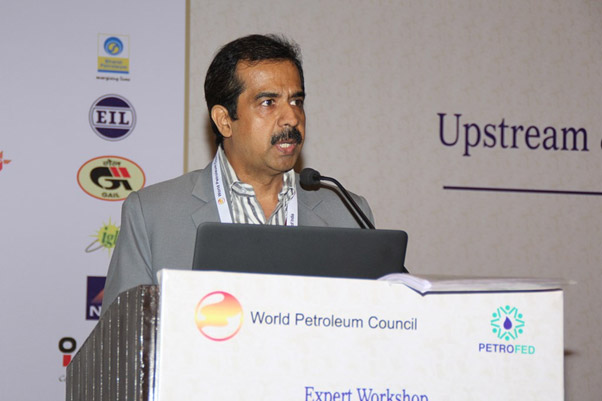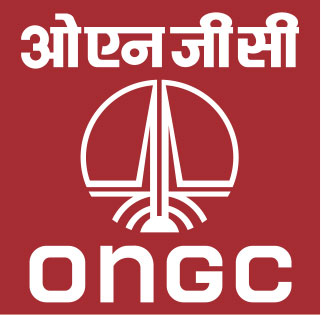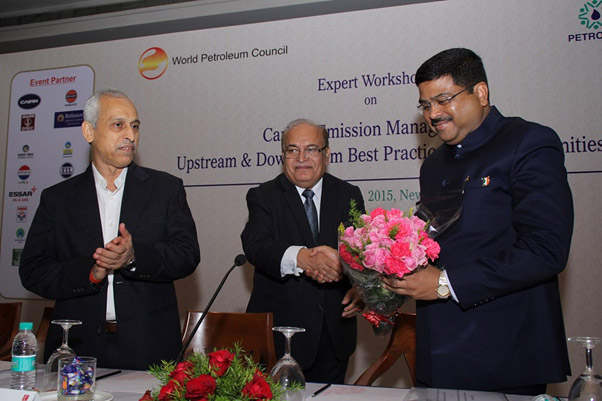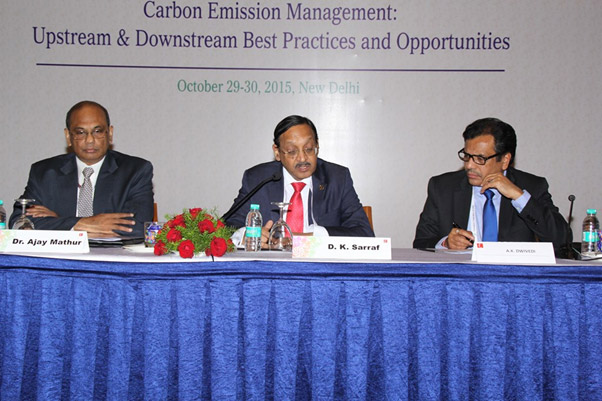Sea Survival Training
- Why is Sea Survival Training critical?
- ONGC’s Sea Survival Centre: A National, and indeed, a Global asset
- Safety is paramount and valuable
- A Training for all!
- Other important training protocols
कार्बन उत्सर्जन प्रबंधन पर डब्ल्यूपीसी विशेषज्ञ कार्यशाला
A World Petroleum Council (WPC) Expert Workshop on ‘Carbon Emission Management: Upstream & Downstream Best Practices and Opportunities’ was organized at New Delhi during 29-30 October 2015. ONGC was one of the principal sponsors and organizers.It was an initiative by Indian National Committee with PetroFed as anchor.
The Hon’ble Union Minister of State (Independent Charge) for Petroleum & Natural Gas Mr. Dharmendra Pradhan inaugurated the Workshop. Speaking on various initiatives undertaken by Government of India, he said that oil companies play a pioneering role in reducing carbon emissions in the entire value chain and in contributing towards making the world cleaner and greener. Pointing out that the most adversely affected by climate change are the poor people of developing countries like India, he emphasized that the focus must shift from “climate change” to “climate justice”.He also highlighted the country’s Intended Nationally Determined Contributions.
Workshop was split into sessions covering topics on role of technology in carbon emission management in oil industry, GHG accounting standards and alternatives for carbon emission reduction. The first session of the Workshop was chaired by Chairman & Managing Director Mr. D. K. Sarraf and Director (Exploration) Mr. A. K. Dwivedi.
Mr. D. K. Sarraf, during his address,expressed carbon emission management as a core thought to protect planet, people and profits. He emphasized on ethical business practices to combat impending climate change.He accentuated that the industries have to deviseeffective strategies to minimize the impact of their operations on environment and society. He underlined that the tenets of “Sustainable Development” in ONGC are institutionalised through Carbon Management & Sustainability Group (CM&SG), a strategic group at corporate level with the mandate to plan and monitor implementation of various activities relating to carbon management, water management and renewable energy.
Mr. A. K. Dwivedi, Director (Exploration) said that carbon emission management, with no compromise on the economic development, is a big challenge. He laid emphasis on promotion of renewable energy, enhancement of energy efficiency and adoption of less carbon intensive technologies. He also stressed that it was not only important to adopt energy efficient technologies and processes but also to consider the impacts of climate change as a part of project conceptualization.
During the first session, speakers from ONGC, OIL and Cairn India presented case studies on application of technology incarbon emission management in their respective companies. Mr. D. V. Swaminathan, CE(P)from CM&SG gave a detailed presentation on mitigation technologies implemented in ONGC. He presented a comprehensive account of ONGC’s efforts in the areas of gas flare reduction, vapour recovery, waste heat recovery, use of cleaner fuel, reduction in electricity consumption,energy efficient machines& lighting system and use of renewable energy.He discussed about energy efficiency projects undertaken at Hazira Plant viz., up-gradation of gas turbines and stage blanking of amine pumps.He also explained about Green Buildings of ONGC, OTPC Tripura natural gas based combined cycle power plant and 51 MW wind power project, Gujarat. He also highlighted the Global Methane Initiative (GMI) and Clean Development Mechanism (CDM) projects undertaken by ONGC.
 CE (P) D. V. Swaminathan presenting ONGC's efforts on carbon emission management
CE (P) D. V. Swaminathan presenting ONGC's efforts on carbon emission management
During the one and a half day event, there was active participation from oil majors and other industry members who shared their innovative ideas on reducing carbon emissions.
In the Valedictory Address, Secretary, Ministry of Petroleum & Natural Gas Mr. K. D. Tripathi exhorted corporations to reorient their business strategies and expansion plans with an eye on increasing energy efficiency, reducing GHG emissions and adopting innovative technologies which would reduce the fossil fuel consumption.
Workshop was a resounding success with sharing of experience, knowledge, best practices and opportunities on carbon emission management in various industries.



